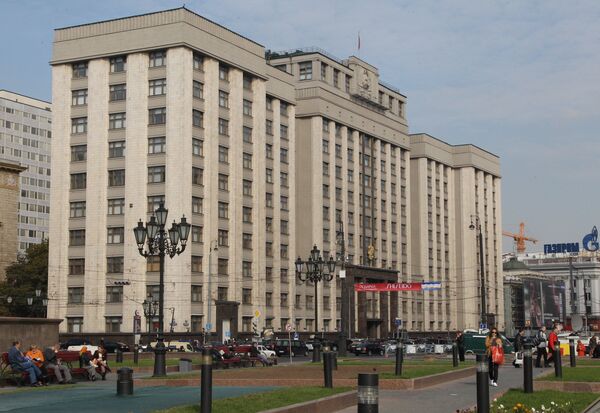Discussions on ratifying the new Russian-U.S. strategic arms reduction treaty (START) have divided Russian deputies into two opposing camps.
The lower house of the Russian parliament, the State Duma, on Friday approved the first of three readings for the ratification of the new treaty.
As expected, members of the country's ruling United Russia party and the A Just Russia party backed the treaty, while the communists and the liberal democrats cried out against it.
Viktor Zavarzin, Chairman of Russia's Defense Committee urged his colleagues to refrain from emotional assessments and ponder the practical side of the issue. "[The new treaty] is of mutual benefit for both countries, while many influential experts, including U.S. ones, believe that Russia would gain more if it is sealed," the lawmaker said.
At the same time, he called "naive" speculations that the United States would ditch its program to create a missile defense shield spanning the territories of European countries. He emphasized that in such a situation Russia would become a passive observer stripped of capabilities to contain the buildup of U.S. strategic weapons. "This hardly corresponds to Russian interests," Zavarzin said.
Nikolai Levichev, head of the Just Russia party, emphasized that the new treaty would have a substantial impact on the further fate of the entire world. "For Russia this treaty, in fact, defines the substance and form of the relations with the United States, and even broader - the relations between Russia and the West. This document may become the first move towards setting up a dialogue between us, or the first move towards creation of a new iron curtain."
Communist leader Gennady Zyuganov slammed the bill saying it aims to destroy Russia's military potential. "The fact is, Russia will die as a great military power... Active efforts to destroy Russia's military potential have been taken over the last ten years. Now we are facing attempts to eliminate its [Russia's] nuclear missile potential."
Liberal Democratic Party leader Vladimir Zhirinovsky voiced concerns that the United States may not abide by the treaty even if it is signed. "We are not voting for the new arms reduction treaty because the U.S. party has more benefits. If the treaty is ratified, our defense capacity will fall."
The new treaty, to replace the START 1 agreement that expired in December 2009, was signed in Prague in April by the presidents of Russia and the United States, Dmitry Medvedev and Barack Obama.
MOSCOW, December 24 (RIA Novosti)


